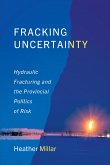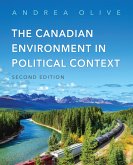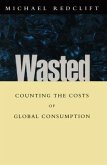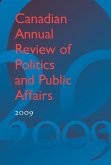- Gebundenes Buch
- Merkliste
- Auf die Merkliste
- Bewerten Bewerten
- Teilen
- Produkt teilen
- Produkterinnerung
- Produkterinnerung
This book utilizes a critical analysis and an ecopolitical lens on Canadian issues, which emphasize the need for urgent action to address problems equitably and sustainably.
Andere Kunden interessierten sich auch für
![Fracking Uncertainty Fracking Uncertainty]() Heather MillarFracking Uncertainty98,99 €
Heather MillarFracking Uncertainty98,99 €![The Canadian Environment in Political Context, Second Edition The Canadian Environment in Political Context, Second Edition]() Andrea OliveThe Canadian Environment in Political Context, Second Edition154,99 €
Andrea OliveThe Canadian Environment in Political Context, Second Edition154,99 €![A Modern Utopia A Modern Utopia]() Herbert George WellsA Modern Utopia37,99 €
Herbert George WellsA Modern Utopia37,99 €![Wasted Wasted]() Michael RedcliftWasted130,99 €
Michael RedcliftWasted130,99 €![Marxism and the Chinese Experience Marxism and the Chinese Experience]() Arif DirlikMarxism and the Chinese Experience204,99 €
Arif DirlikMarxism and the Chinese Experience204,99 €![A Modern Utopia A Modern Utopia]() Herbert George WellsA Modern Utopia18,99 €
Herbert George WellsA Modern Utopia18,99 €![Canadian Annual Review of Politics and Public Affairs 2009 Canadian Annual Review of Politics and Public Affairs 2009]() David MutimerCanadian Annual Review of Politics and Public Affairs 2009191,99 €
David MutimerCanadian Annual Review of Politics and Public Affairs 2009191,99 €-
-
-
This book utilizes a critical analysis and an ecopolitical lens on Canadian issues, which emphasize the need for urgent action to address problems equitably and sustainably.
Hinweis: Dieser Artikel kann nur an eine deutsche Lieferadresse ausgeliefert werden.
Hinweis: Dieser Artikel kann nur an eine deutsche Lieferadresse ausgeliefert werden.
Produktdetails
- Produktdetails
- Verlag: University of Toronto Press
- Seitenzahl: 416
- Erscheinungstermin: 15. Mai 2025
- Englisch
- Abmessung: 229mm x 152mm x 25mm
- ISBN-13: 9781487508166
- ISBN-10: 1487508166
- Artikelnr.: 72864955
- Herstellerkennzeichnung
- Produktsicherheitsverantwortliche/r
- Europaallee 1
- 36244 Bad Hersfeld
- gpsr@libri.de
- Verlag: University of Toronto Press
- Seitenzahl: 416
- Erscheinungstermin: 15. Mai 2025
- Englisch
- Abmessung: 229mm x 152mm x 25mm
- ISBN-13: 9781487508166
- ISBN-10: 1487508166
- Artikelnr.: 72864955
- Herstellerkennzeichnung
- Produktsicherheitsverantwortliche/r
- Europaallee 1
- 36244 Bad Hersfeld
- gpsr@libri.de
By Rosalind Warner, Peter Stoett, and Will Greaves
List of Illustrations
List of Boxes and Case Studies
Acknowledgments
1. The Canadian Ecopolitical Landscape
L earning Objectives
Introduction: What Is Canadian Ecopolitics?
Canadian Political Basics
Common Themes
Structure of the Book
Conclusion: Putting on the Ecopolitical Lenses
2. Ecopolitical World Views
Learning Objectives
Introduction: Ideas in Canadian Ecopolitics
Ecopolitical Worldviews
From a National to a Planetary Imaginary
Comparing World Views
Four Key Debates within Ecopolitical Thought
Conclusion: Inescapable Complexities
3. The Global Commons and Global Issues
Learning Objectives
Introduction: Canada in the World
The Commons and Global Issues
Ozone Depletion
Biodiversity
Conclusion: From a Commons to a Community
4. Canadian Ecopolitical History
Learning Objectives
Introduction: The Story of Ecopolitical History
Pre-Confederation History: Early Ecopolitical Structures
Post-Confederation Period and Staples
New National Parks and Protected Areas
The Westward Expansion
The Effects of Globalization in Canada
The Road to Indigenous Self-Governance
Conclusion: A Mixed History
5. People, Products, and Planning
Learning Objectives
Introduction
People
Products
Dealing with Pollutants
Food and Agricultural Production
The Forest Industry
International Trade
Planning
Conclusion: Connecting Ecopolitics with Everyday Life
6. Energy
Learning Objectives
Introduction: The Vital Need for Energy
Early Energy
Oil and Gas
Alberta’s Bitumen Sands
Liquified Natural Gas
Electricity
Hydro-Electricity
Nuclear Power
Renewables
Electric Vehicles: The Future of Transportation
Conclusion: Finding the Right Energy Mix
7. Freshwater and Canadian Ecopolitics
Learning Objectives
Introduction: Water and Life
The Water Cycle and Human Control
Water Users and Rights
Water Quality and Pollution
Multi-Level Governance of Water
Crossing The Border
Inherent Rights for Water?
Conclusion: Future Flows
8. Oceans
Learning Objectives
Introduction: The Changing Oceans
Climate Change and the Oceans
The Fishing Nations
Aquaculture
Pollution
Marine Noise Pollution
Deep Seabed Mining
Conclusion: The Oceanic Imperative
9. Climate Ecopolitics
Learning Objectives
Introduction: The Climate Crisis
Early Canadian Activism
The Kyoto Roller Coaster
After Kyoto
The Paris Agreement
Conclusion: Future Prospects for Progress
10. Biosecurity and Health
Learning Objectives
Introduction: Health Is Ecopolitical?
Disease
Biodiversity Loss as a Threat to Biosecurity and Health
Biological Invasion
The Illegal Wildlife Trade
Climate Change: The Ultimate Biosecurity and Health Threat
Conclusion: An Overlooked Agenda
11. The Arctic
Learning Objectives
Introduction: The View from the North
Climate Change Impacts in the Arctic
Arctic Natural Resources
Governing the Arctic Environment
International Law and Institutions
The Urban Arctic
Indigenous Governance
Conclusion: The Arctic as An Ecopolitical Fulcrum
12. Assessing Canadian Ecopolitics
Learning Objectives
Introduction: The Panorama of Canadian Ecopolitics
Indigenous Peoples
Climate Change
Biodiversity Loss
Pollution and Product Life Cycles
Security
Environmental Ethics
Multi-Level Adaptive Governance Gaps
Indigenous Sovereignty and Ways of Being
Accountability and Good Ecopolitical Citizenship
Environmental and Non-Human Legal Rights and Representation
Canada as a Global Citizen
What Can You Do?
Notes
References
Index
List of Boxes and Case Studies
Acknowledgments
1. The Canadian Ecopolitical Landscape
L earning Objectives
Introduction: What Is Canadian Ecopolitics?
Canadian Political Basics
Common Themes
Structure of the Book
Conclusion: Putting on the Ecopolitical Lenses
2. Ecopolitical World Views
Learning Objectives
Introduction: Ideas in Canadian Ecopolitics
Ecopolitical Worldviews
From a National to a Planetary Imaginary
Comparing World Views
Four Key Debates within Ecopolitical Thought
Conclusion: Inescapable Complexities
3. The Global Commons and Global Issues
Learning Objectives
Introduction: Canada in the World
The Commons and Global Issues
Ozone Depletion
Biodiversity
Conclusion: From a Commons to a Community
4. Canadian Ecopolitical History
Learning Objectives
Introduction: The Story of Ecopolitical History
Pre-Confederation History: Early Ecopolitical Structures
Post-Confederation Period and Staples
New National Parks and Protected Areas
The Westward Expansion
The Effects of Globalization in Canada
The Road to Indigenous Self-Governance
Conclusion: A Mixed History
5. People, Products, and Planning
Learning Objectives
Introduction
People
Products
Dealing with Pollutants
Food and Agricultural Production
The Forest Industry
International Trade
Planning
Conclusion: Connecting Ecopolitics with Everyday Life
6. Energy
Learning Objectives
Introduction: The Vital Need for Energy
Early Energy
Oil and Gas
Alberta’s Bitumen Sands
Liquified Natural Gas
Electricity
Hydro-Electricity
Nuclear Power
Renewables
Electric Vehicles: The Future of Transportation
Conclusion: Finding the Right Energy Mix
7. Freshwater and Canadian Ecopolitics
Learning Objectives
Introduction: Water and Life
The Water Cycle and Human Control
Water Users and Rights
Water Quality and Pollution
Multi-Level Governance of Water
Crossing The Border
Inherent Rights for Water?
Conclusion: Future Flows
8. Oceans
Learning Objectives
Introduction: The Changing Oceans
Climate Change and the Oceans
The Fishing Nations
Aquaculture
Pollution
Marine Noise Pollution
Deep Seabed Mining
Conclusion: The Oceanic Imperative
9. Climate Ecopolitics
Learning Objectives
Introduction: The Climate Crisis
Early Canadian Activism
The Kyoto Roller Coaster
After Kyoto
The Paris Agreement
Conclusion: Future Prospects for Progress
10. Biosecurity and Health
Learning Objectives
Introduction: Health Is Ecopolitical?
Disease
Biodiversity Loss as a Threat to Biosecurity and Health
Biological Invasion
The Illegal Wildlife Trade
Climate Change: The Ultimate Biosecurity and Health Threat
Conclusion: An Overlooked Agenda
11. The Arctic
Learning Objectives
Introduction: The View from the North
Climate Change Impacts in the Arctic
Arctic Natural Resources
Governing the Arctic Environment
International Law and Institutions
The Urban Arctic
Indigenous Governance
Conclusion: The Arctic as An Ecopolitical Fulcrum
12. Assessing Canadian Ecopolitics
Learning Objectives
Introduction: The Panorama of Canadian Ecopolitics
Indigenous Peoples
Climate Change
Biodiversity Loss
Pollution and Product Life Cycles
Security
Environmental Ethics
Multi-Level Adaptive Governance Gaps
Indigenous Sovereignty and Ways of Being
Accountability and Good Ecopolitical Citizenship
Environmental and Non-Human Legal Rights and Representation
Canada as a Global Citizen
What Can You Do?
Notes
References
Index
List of Illustrations
List of Boxes and Case Studies
Acknowledgments
1. The Canadian Ecopolitical Landscape
L earning Objectives
Introduction: What Is Canadian Ecopolitics?
Canadian Political Basics
Common Themes
Structure of the Book
Conclusion: Putting on the Ecopolitical Lenses
2. Ecopolitical World Views
Learning Objectives
Introduction: Ideas in Canadian Ecopolitics
Ecopolitical Worldviews
From a National to a Planetary Imaginary
Comparing World Views
Four Key Debates within Ecopolitical Thought
Conclusion: Inescapable Complexities
3. The Global Commons and Global Issues
Learning Objectives
Introduction: Canada in the World
The Commons and Global Issues
Ozone Depletion
Biodiversity
Conclusion: From a Commons to a Community
4. Canadian Ecopolitical History
Learning Objectives
Introduction: The Story of Ecopolitical History
Pre-Confederation History: Early Ecopolitical Structures
Post-Confederation Period and Staples
New National Parks and Protected Areas
The Westward Expansion
The Effects of Globalization in Canada
The Road to Indigenous Self-Governance
Conclusion: A Mixed History
5. People, Products, and Planning
Learning Objectives
Introduction
People
Products
Dealing with Pollutants
Food and Agricultural Production
The Forest Industry
International Trade
Planning
Conclusion: Connecting Ecopolitics with Everyday Life
6. Energy
Learning Objectives
Introduction: The Vital Need for Energy
Early Energy
Oil and Gas
Alberta’s Bitumen Sands
Liquified Natural Gas
Electricity
Hydro-Electricity
Nuclear Power
Renewables
Electric Vehicles: The Future of Transportation
Conclusion: Finding the Right Energy Mix
7. Freshwater and Canadian Ecopolitics
Learning Objectives
Introduction: Water and Life
The Water Cycle and Human Control
Water Users and Rights
Water Quality and Pollution
Multi-Level Governance of Water
Crossing The Border
Inherent Rights for Water?
Conclusion: Future Flows
8. Oceans
Learning Objectives
Introduction: The Changing Oceans
Climate Change and the Oceans
The Fishing Nations
Aquaculture
Pollution
Marine Noise Pollution
Deep Seabed Mining
Conclusion: The Oceanic Imperative
9. Climate Ecopolitics
Learning Objectives
Introduction: The Climate Crisis
Early Canadian Activism
The Kyoto Roller Coaster
After Kyoto
The Paris Agreement
Conclusion: Future Prospects for Progress
10. Biosecurity and Health
Learning Objectives
Introduction: Health Is Ecopolitical?
Disease
Biodiversity Loss as a Threat to Biosecurity and Health
Biological Invasion
The Illegal Wildlife Trade
Climate Change: The Ultimate Biosecurity and Health Threat
Conclusion: An Overlooked Agenda
11. The Arctic
Learning Objectives
Introduction: The View from the North
Climate Change Impacts in the Arctic
Arctic Natural Resources
Governing the Arctic Environment
International Law and Institutions
The Urban Arctic
Indigenous Governance
Conclusion: The Arctic as An Ecopolitical Fulcrum
12. Assessing Canadian Ecopolitics
Learning Objectives
Introduction: The Panorama of Canadian Ecopolitics
Indigenous Peoples
Climate Change
Biodiversity Loss
Pollution and Product Life Cycles
Security
Environmental Ethics
Multi-Level Adaptive Governance Gaps
Indigenous Sovereignty and Ways of Being
Accountability and Good Ecopolitical Citizenship
Environmental and Non-Human Legal Rights and Representation
Canada as a Global Citizen
What Can You Do?
Notes
References
Index
List of Boxes and Case Studies
Acknowledgments
1. The Canadian Ecopolitical Landscape
L earning Objectives
Introduction: What Is Canadian Ecopolitics?
Canadian Political Basics
Common Themes
Structure of the Book
Conclusion: Putting on the Ecopolitical Lenses
2. Ecopolitical World Views
Learning Objectives
Introduction: Ideas in Canadian Ecopolitics
Ecopolitical Worldviews
From a National to a Planetary Imaginary
Comparing World Views
Four Key Debates within Ecopolitical Thought
Conclusion: Inescapable Complexities
3. The Global Commons and Global Issues
Learning Objectives
Introduction: Canada in the World
The Commons and Global Issues
Ozone Depletion
Biodiversity
Conclusion: From a Commons to a Community
4. Canadian Ecopolitical History
Learning Objectives
Introduction: The Story of Ecopolitical History
Pre-Confederation History: Early Ecopolitical Structures
Post-Confederation Period and Staples
New National Parks and Protected Areas
The Westward Expansion
The Effects of Globalization in Canada
The Road to Indigenous Self-Governance
Conclusion: A Mixed History
5. People, Products, and Planning
Learning Objectives
Introduction
People
Products
Dealing with Pollutants
Food and Agricultural Production
The Forest Industry
International Trade
Planning
Conclusion: Connecting Ecopolitics with Everyday Life
6. Energy
Learning Objectives
Introduction: The Vital Need for Energy
Early Energy
Oil and Gas
Alberta’s Bitumen Sands
Liquified Natural Gas
Electricity
Hydro-Electricity
Nuclear Power
Renewables
Electric Vehicles: The Future of Transportation
Conclusion: Finding the Right Energy Mix
7. Freshwater and Canadian Ecopolitics
Learning Objectives
Introduction: Water and Life
The Water Cycle and Human Control
Water Users and Rights
Water Quality and Pollution
Multi-Level Governance of Water
Crossing The Border
Inherent Rights for Water?
Conclusion: Future Flows
8. Oceans
Learning Objectives
Introduction: The Changing Oceans
Climate Change and the Oceans
The Fishing Nations
Aquaculture
Pollution
Marine Noise Pollution
Deep Seabed Mining
Conclusion: The Oceanic Imperative
9. Climate Ecopolitics
Learning Objectives
Introduction: The Climate Crisis
Early Canadian Activism
The Kyoto Roller Coaster
After Kyoto
The Paris Agreement
Conclusion: Future Prospects for Progress
10. Biosecurity and Health
Learning Objectives
Introduction: Health Is Ecopolitical?
Disease
Biodiversity Loss as a Threat to Biosecurity and Health
Biological Invasion
The Illegal Wildlife Trade
Climate Change: The Ultimate Biosecurity and Health Threat
Conclusion: An Overlooked Agenda
11. The Arctic
Learning Objectives
Introduction: The View from the North
Climate Change Impacts in the Arctic
Arctic Natural Resources
Governing the Arctic Environment
International Law and Institutions
The Urban Arctic
Indigenous Governance
Conclusion: The Arctic as An Ecopolitical Fulcrum
12. Assessing Canadian Ecopolitics
Learning Objectives
Introduction: The Panorama of Canadian Ecopolitics
Indigenous Peoples
Climate Change
Biodiversity Loss
Pollution and Product Life Cycles
Security
Environmental Ethics
Multi-Level Adaptive Governance Gaps
Indigenous Sovereignty and Ways of Being
Accountability and Good Ecopolitical Citizenship
Environmental and Non-Human Legal Rights and Representation
Canada as a Global Citizen
What Can You Do?
Notes
References
Index








